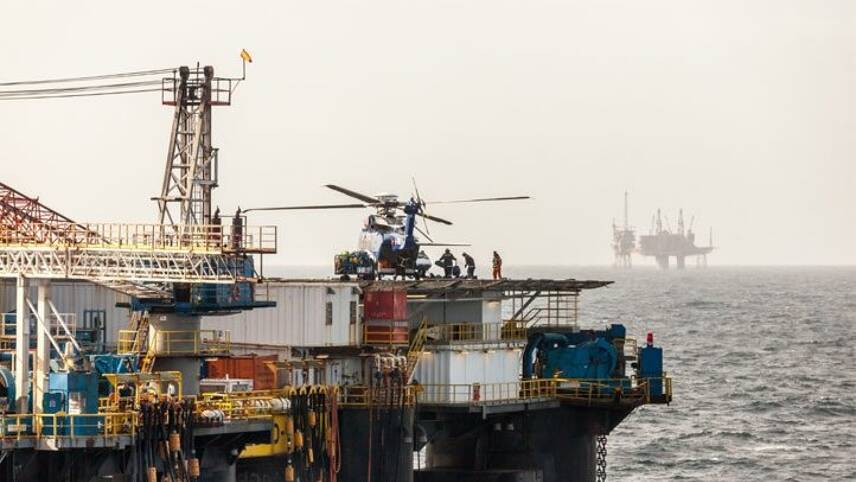Register for free and continue reading
Join our growing army of changemakers and get unlimited access to our premium content

By some estimates
Published today (20 December) by the Department for Business, Energy and Industrial Strategy (BEIS), the stress test framework includes six potential climate conditions for projects.
These include whether the developer of a specific project has met its commitments to reduce emissions; whether the sector as a whole has met its commitments to reduce emissions; the UK’s position in regards to oil and gas imports; consideration of indirect (Scope 3) emissions from the projects and consideration of the ‘global production gap’.
This latter term refers to the global need to reduce fossil fuel production if the Paris Agreement commitments are to be delivered. The UN warned in October that the world is on course to produce around 110% more fossil fuels in 2030 than what is compatible with a 1.5C future.
All in all, the proposed stress tests are aligned with the £16bn North Sea Transition Deal which was published earlier this year. The Deal states that the sector should halve its emissions by 2030, against a 2018 baseline. The net reduction should rise to 90% by 2040 and 100% by 2050, bringing the sector to net-zero.
That Deal was widely criticised by green groups, who called it an excuse for business-as-usual and incompatible with long-term net-zero goals. Since the Deal was published in March, the UK has confirmed its Sixth Carbon Budget, entailing a 78% reduction in emissions between 1990 and 2035. BEIS has, therefore, said future bids for licences will need to be “viewed in the context of the Government’s wider climate commitments” than just net-zero by 2050.
BEIS will consult on the proposals until 11.45pm on 28 February 2022.
The Department’s Secretary Kwasi Kwarteng Tweeted about the consultation, stating that the Government sees the role of oil and gas in a net-zero UK as one of “transition, not extinction”.
He wrote: “Turning off the taps would put energy security and British jobs at risk – and leave us more reliant on foreign imports”.
The UK is a net gas importer but has recently committed to ending unabated gas-fired electricity generation by 2035 and ending new gas boiler sales for homes within the same timeframe. Green groups have pointed to these commitments, and to the International Energy Agency’s (IEA) evidence that no new fossil fuel capacity can be permitted, as reasons for BEIS to go further than its proposed stress tests.
Greenpeace UK’s policy director Doug Parr said: “The Government has produced some detailed, concrete suggestions for various tests that might be favoured by industry, but not on actual compatibility with the climate crisis we’re in, where it is infuriatingly vague.
“A real climate compatibility test would bring an end to new oil and gas licences, and accelerate our progress towards cleaner energy and a just transition for oil and gas workers. If the UK wants to make any claim of climate leadership, it’s hard to see how it can do anything else. “
Investors ‘shaken’ over Cambo decision
In related news, the Aberdeen and Grampian Chamber of Commerce, supported by The British Chambers of Commerce and Scottish Chambers of Commerce, have written to ministers at Westminster and Holyrood asking for a “more reasoned debate” around the role of UK oil and gas in the energy mix in the coming decades.
The 58 signatories largely represent the oil and gas industry, so are pushing back against the IEA’s net-zero roadmap and campaign groups like Greenpeace.
“There is no current future scenario where there is not a requirement for some oil and gas,” the letter states. “… this leaves us with two options; to produce this domestically, with full control over the regulatory environment in which it is extracted; or to import an increasing amount of our energy, with the heavier carbon toll that shipping it from other parts of the world carries.
“The latter makes little economic sense and even less environmental sense.”
The letter cites the IEA’s assertation that 20 million barrels of oil will be used daily in 2050, an 80% reduction on 2019 letters. It fails to mention the Agency’s argument that this should all come from existing projects, with no addition to global capacity.
It also says that investor confidence in UK oil and gas is being “shaken” by decisions taken by the Scottish Government and by the private sector following pressure from environmentalists. Energy firm Siccar Point said earlier this month that it will put plans for the controversial Cambo oil field development “on pause” after Shell, which had a 30% stake, pulled out. Friends of the Earth and the New Economics Foundation claim there are more than 40 other oil and gas projects in the UK’s pipeline through to 2025.
Sarah George


Please login or Register to leave a comment.